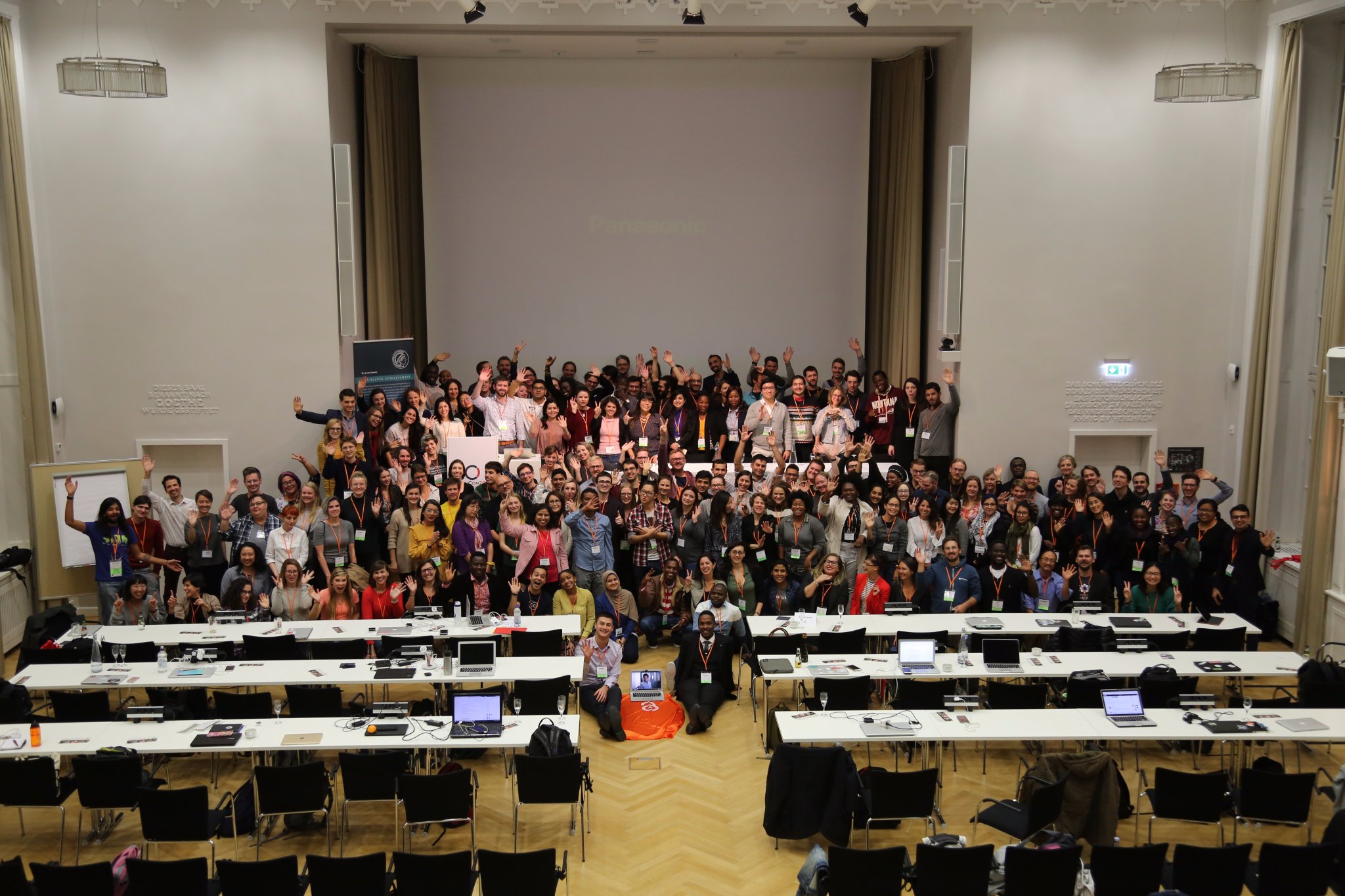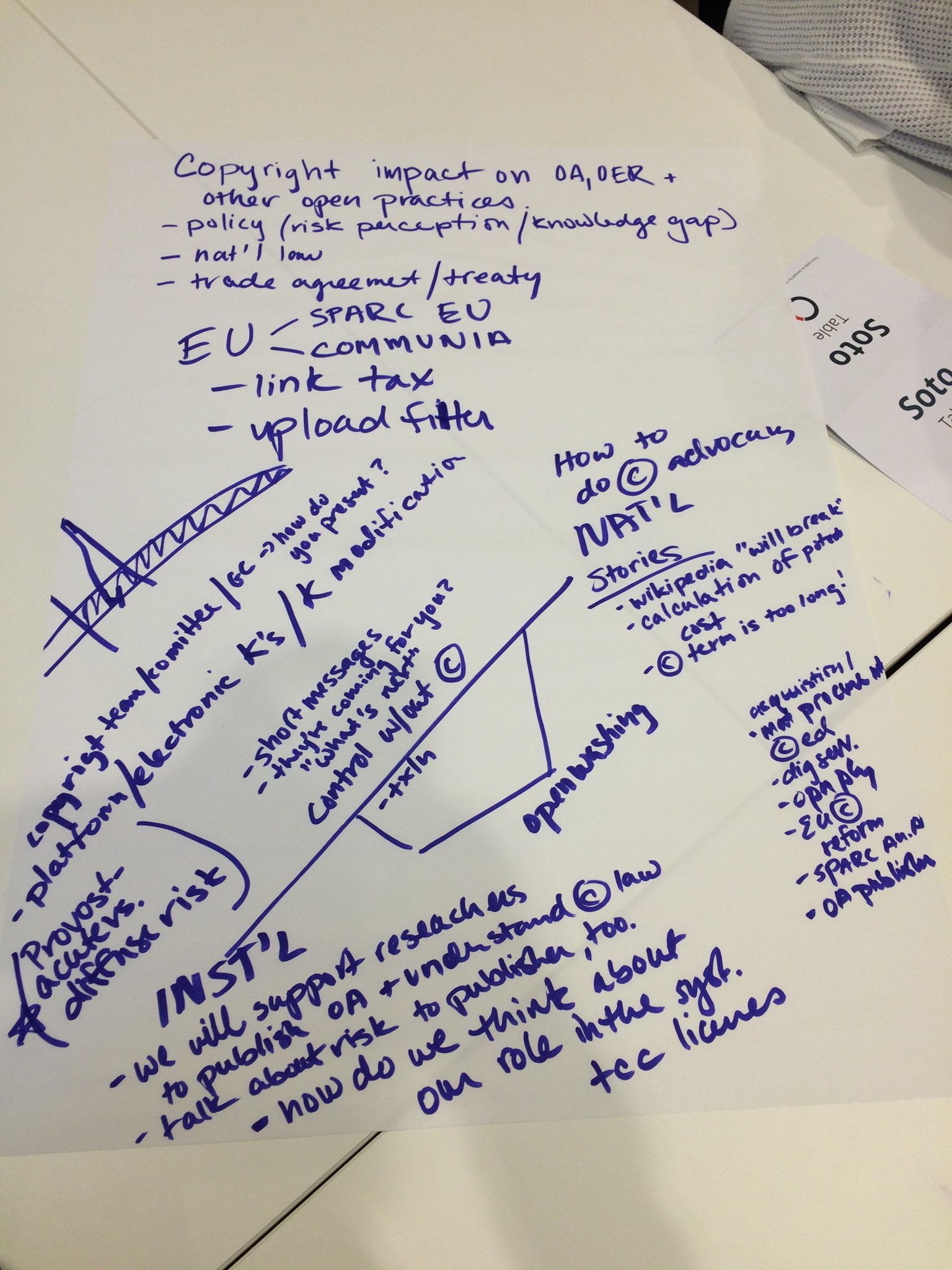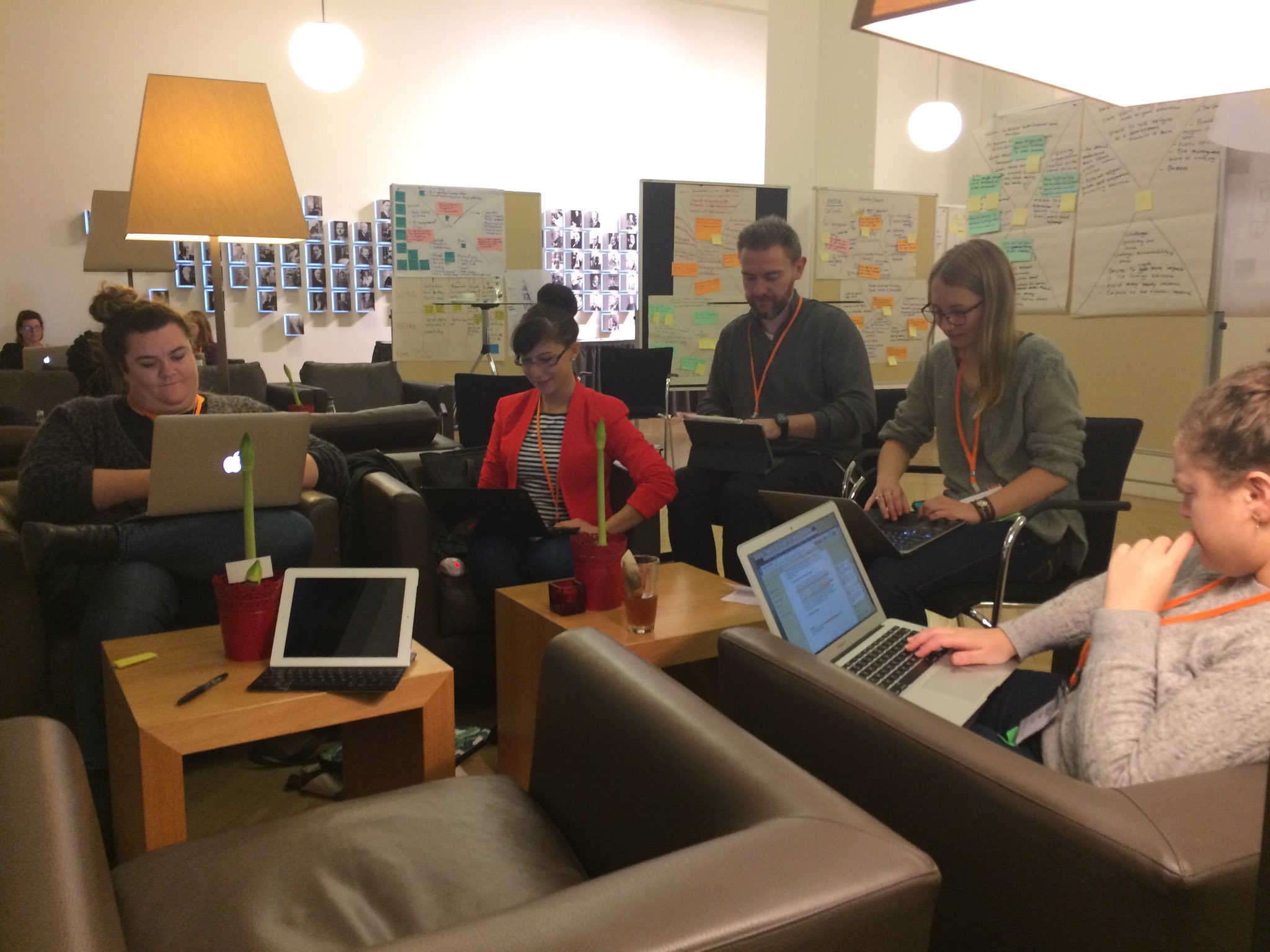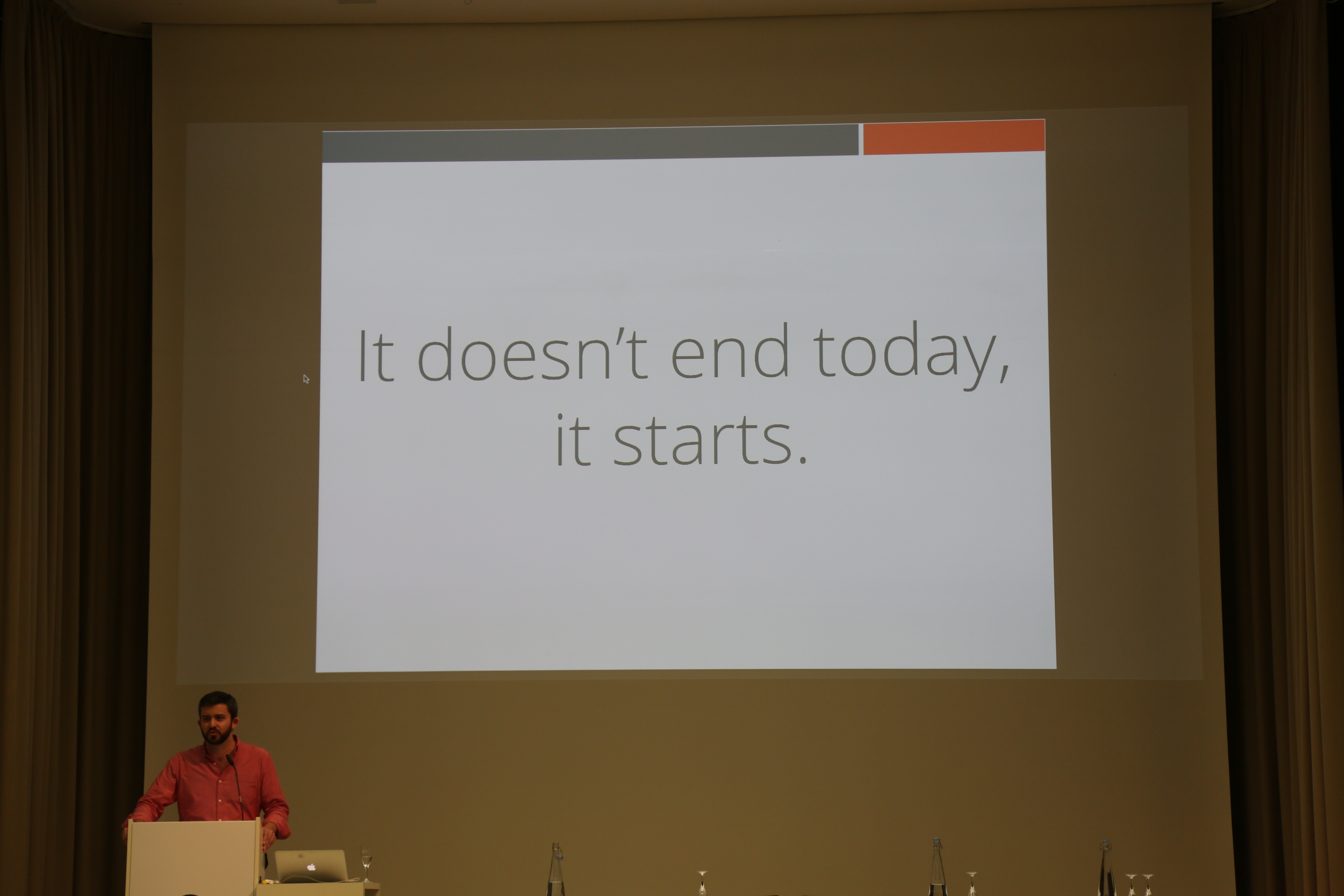
The following post was written by Jean-Sébastien Sauvé, Master’s student in information science at l’École de bibliothéconomie et des sciences de l’information (EBSI), Université de Montréal, and winner of CARL’s OpenCon 2017 scholarship.
As an architectural historian, I have often been faced with the old adage “publish or perish.” I constantly had to demonstrate the excellence of my research by publishing monographs and articles in reputable journals, so as to be recognized by my peers as an accomplished researcher. Nevertheless, I have often wondered who was reading my work and even who could read it: not everyone can afford abundantly illustrated books on the history of architecture. As I complete a Master’s degree in information science at the Université de Montréal, I have decided to follow through on these thoughts by giving greater attention to the accessibility of research. This is how I fell into the world of Open Science.
Thanks to financial support from the Canadian Association of Research Libraries (CARL), I had the opportunity to attend OpenCon 2017, held in Berlin from November 11 to 13, 2017. Organized by SPARC (Scholarly Publishing and Academic Resources Coalition), an organization that seeks to promote the three Os (Open access, Open education and Open data) and to democratize access to knowledge, OpenCon is an annual meeting that brings together multiple influential players from the new generation.
We were hosted by the Max Planck Society, which was coordinating the event at Harnack House in the Dahlem District, near the Free University. Well known in the scientific community, the Max Planck Society has been promoting intellectual exchanges and knowledge sharing since its very beginnings. Very active on the Open Science scene, the Society played a leading role in the development of the Berlin Declaration on Open Access to Knowledge in 2003.
This year, OpenCon brought together 186 people from 62 countries representing all continents. I was delighted to see that 50% of participants were from the South American, African and Asian continents.

With all the plenary sessions, round tables, “un-conferences” and workshops pertaining to the implementation of very concrete projects, I had the opportunity to listen to speakers who presented major issues concerning access to knowledge. In this post, I would like to present four issues that made a particular impression on me. Of course, this is a purely personal editorial selection.
- The clash between North and South
A number of speakers highlighted the growing unease felt by those from Southern countries in regards to the tools developed in Northern countries for promoting and implementing open access. Technological advancement has definitely made open science possible. Nonetheless, a number of speakers pointed out that it is difficult to create and disseminate information when the equipment (computers, etc.) is simply not available. Several countries do not have easy access to the internet, whereas it is a prerequisite for information to be disseminated by local researchers, and for this information to be consulted and accessed by users, be they specialists or not. Without these resources, researchers in Southern countries cannot spread their research. As a result, more often than not the information available through open access is that which is produced by countries in the Northern hemisphere.
Thomas Mboa, who is currently completing a PhD at Université Laval, even suggested that open access could become, to a certain extent, an instrument of neocolonialism, in that tools are mainly developed for a Western context. Consequently, the problems studied by Southern researchers are often those affecting the European or North American regions. Worse still, researchers seeking to obtain international recognition by publishing on international topics are often disconnected from their own community. On another panel, the South African speaker Nozuko Hlwatika promoted the creation of a purely African model to enable consideration of local particularities, research on African issues and African methods that, otherwise, would not enjoy any international recognition. Unfortunately, political will is rarely present.
Similar, a number of participants shared the view that the dominant position of the English language is a problem in scholarly publishing. This problem arises in Canada obviously, but also in the African context where the language barrier between Anglophone and Francophone countries is indeed present: as Mboa reports, only 1% of global knowledge production comes from Francophone Africa. French academic journals are less indexed, and less frequently digitized. Fortunately, there are projects such as the SOHA collective, which aims to bring together and mobilize African and Haitian researchers and students on issues surrounding open science.
- Diversity
Siko Bouterse presented a powerful image: a photograph of a copy of the Encyclopedia Britannica, which she considers the sum of white people’s knowledge. One may think that projects such as Wikipedia now give a place to underrepresented voices, but such is not the case. Nearly 80% of the pages of the free encyclopedia were written by white people, mostly Americans and Europeans, and deal mainly with their own interests. Wikipedia rarely takes marginal topics into consideration, and minorities are often excluded. This is rather surprising because, as Bouterse summarized so well: “The history of marginal people is the history of the majority of the world!” She therefore encouraged us to stop and take the time to look at the people around us. We have to realize that this diversity is key to nurturing new ideas.
- Academics
The academic community often seems resistant toward open science. Quite often, these concerns are related to faculty’s career progression (often with a view to achieving professional standing and tenure). A number of professors even consider that the arrival of open science would infringe on their academic freedom.
I participated in a workshop aiming to fully understand the economic, political and academic power relationships that exist in North American universities. We examined some of these relationships in order to see how we could promote open science.

We created a persona (an academic librarian!) and attempted to find out how she could encourage professors to trust open science. The best measures to combat the prejudices toward open science were, in our opinion, integration into the environment and education: as librarians, we must be rooted in the environment that we serve in order to forge closer links with the academic community. This can take the form of information sessions or participative workshops bringing researchers together based on their concerns and interests. It is also a matter of supporting researchers right from the initial stages of their research to make them understand that it is in their interest for them to be widely read so that they have a greater impact. Lastly, it is a matter of building customer loyalty by constantly reminding them of our existence: librarians must get out of their libraries to meet with researchers in the field.
A major concern of professors is rooted in copyright, a right which is often set in opposition to open access to information. During a workshop on copyright, Meredith Jacob from Creative Commons encouraged librarians to become informed on the flexibility of the rules regarding open access.

The legislation protecting copyright is here to stay and is not incompatible with open science. The librarian must therefore know the range of possible actions available to the researcher while bearing in mind the presence of large publishers who attempt to recruit scientists at any price for their various platforms.
4. Impact outside the academic community
Open science does not solely concern university libraries and researchers. Multiple speakers presented projects that had major repercussions on local populations. I am thinking, for example, of Aliya Ibraimova from Kyrgyzstan, whose team was trying to set up cartographic tools intended to provide rural communities with access to drinking water, or of Palestinian Kholoud Al Ajarma, who wanted to democratize the teaching of photography to youth living in refugee camps. We saw how we can make a difference by participating in initiatives that go beyond the walls of our institutions.
OpenCon’s last day was dedicated to the Do-a-Thon: this involved digging in and participating actively in the development of concrete projects related to open education resources, open data and open access. As for me, I decided to participate in a project aiming to promote open humanities.

For now, we have laid the foundations for our project by drafting a statement of intentions. We have also begun to create a tool kit and have initiated a reflection on access to open data in the social sciences and humanities community. The project is in its infancy for the time being, but we are always open to new collaborations if you wish to join us: (https://github.com/sparcopen/doathon/issues/56).
At the risk of resorting to clichés, I would say that OpenCon is one of the most stimulating conferences I have had the opportunity of attending throughout my university studies, due to the quality of the speakers, the diversity of topics and the originality of the activities proposed. I feel privileged to have been able to create international connections with other young researchers and professionals who recognize the importance and the potential of open science. For those of you who, after reading this, wish to learn more about the issues and perspectives discussed at OpenCon, I encourage you to consult the notes that were drafted collectively during each conference. They are available on the conference site (click on the “Session Notes” button listed for each session). Enjoy the (additional) reading!

